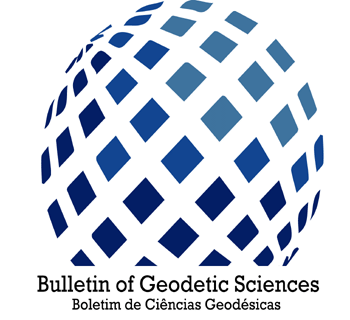Relative positioning is still the most widely used method for determination of coordinates in precision geodetic surveys. However, the Precise Point Positioning (PPP) is increasingly in evidence, due to the good results offered and the practicality of its use. This study aims to evaluate the accuracy of these positioning methods in order to indicate which method is currently more accurate. The data used in this study were collected by the stations of RBMC (Brazilian Network for Continuous Monitoring of GNSS Systems). For PPP analysis, it was used the free service online IBGE-PPP, and for analysis of static relative positioning, it was used the free online GPS processing service AUSPOS and commercial software LGO (Leica Geo Office Combined). After the compatibility between the systems of reference and timing of coordinates estimated by LGO, IBGE-PPP and AUSPOS, these coordinates were compared with the reference coordinates provided by the IBGE, which were also transformed and updated to the same reference system and time of coordinates estimated. According to the results, it was concluded that, at present, the method of relative positioning continues to provide the most accurate results, regardless of the length of the baseline. It is important to emphasize the potentiality of the use of single frequency receivers in the relative positioning for short baselines (until 20 km). In this case, at 64.3% of the results, a total of 147, the accuracy was millimeter. It should be noted the potential of the IBGE-PPP and AUSPOS. In the case of IBGE-PPP in 100% of cases the accuracy was centimeter, while in AUSPOS in only 15.6% of cases the accuracy was decimeter.
Key Words :
Accuracy; PPP; AUSPOS; Relative Positioning; GNSS.

 Thumbnail
Thumbnail
 Thumbnail
Thumbnail
 Thumbnail
Thumbnail
 Thumbnail
Thumbnail
 Thumbnail
Thumbnail
 Thumbnail
Thumbnail
 Thumbnail
Thumbnail
 Thumbnail
Thumbnail
 Thumbnail
Thumbnail
 Thumbnail
Thumbnail
 Thumbnail
Thumbnail
 Thumbnail
Thumbnail
 Thumbnail
Thumbnail
 Thumbnail
Thumbnail
 Thumbnail
Thumbnail
 Thumbnail
Thumbnail
 Thumbnail
Thumbnail
 Thumbnail
Thumbnail
 Thumbnail
Thumbnail
 Thumbnail
Thumbnail
 Thumbnail
Thumbnail
 Thumbnail
Thumbnail
 Thumbnail
Thumbnail
 Thumbnail
Thumbnail
 Thumbnail
Thumbnail
 Thumbnail
Thumbnail
 Thumbnail
Thumbnail
 Thumbnail
Thumbnail































